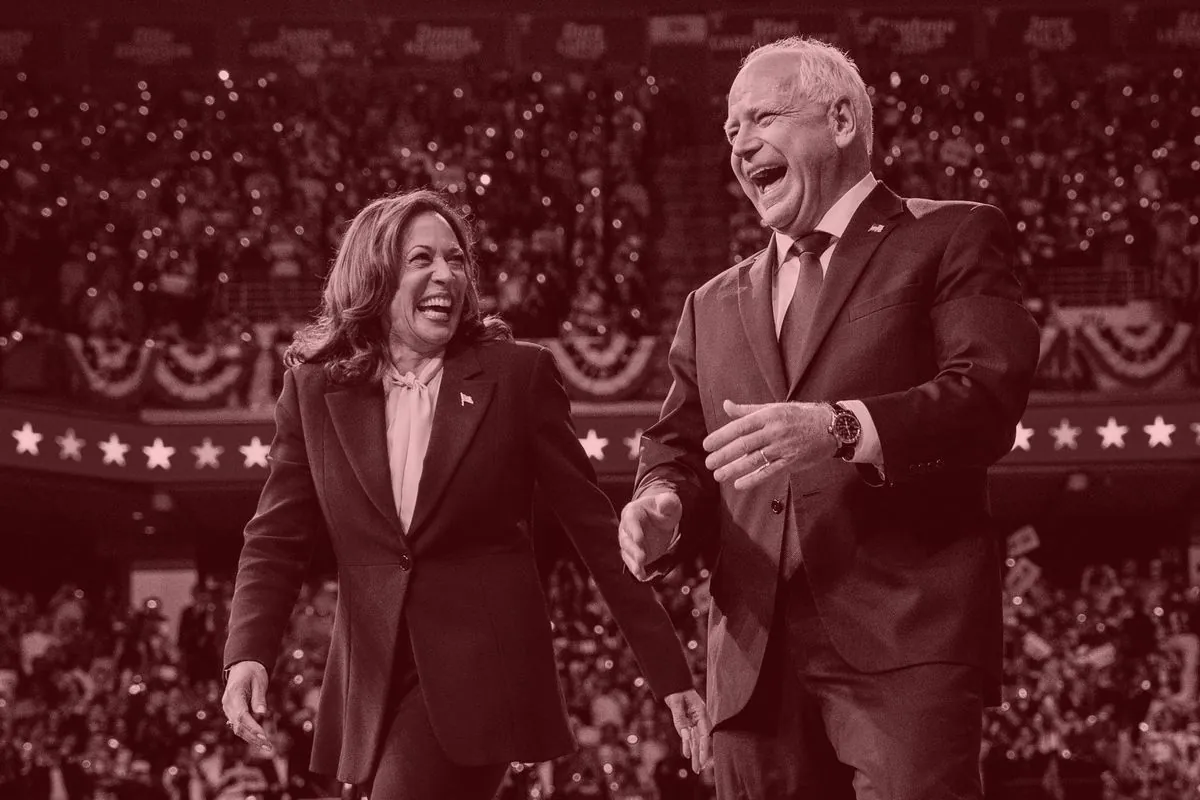Harris-Walz Ticket Puts Progressive Economics at Forefront of 2024 Campaign
Vice President Kamala Harris selects Minnesota Governor Tim Walz as running mate, emphasizing progressive economic policies. The duo faces challenges in implementing their agenda amidst political and economic hurdles.

In a significant political development, Vice President Kamala Harris has chosen Minnesota Governor Tim Walz as her running mate for the upcoming U.S. presidential election on November 5, 2024. This decision places progressive economics at the center of their campaign strategy.
Walz, a 60-year-old former educator, has built a reputation as an advocate for progressive values during his tenure as governor. His policies in Minnesota have included implementing free school meals, establishing greenhouse gas reduction targets, expanding paid leave, and safeguarding collective bargaining rights.
Progressive economics, akin to European social democracy, emphasizes the need for robust government oversight of corporations to protect workers and the environment. This approach contrasts with the "trickle-down economics" favored by Republicans and some Democrats, which posits that policies benefiting corporations and wealthy individuals will ultimately benefit everyone.

The progressive movement in the United States has a rich history, dating back to the late 19th and early 20th centuries. It gained significant traction with President Franklin D. Roosevelt's New Deal in the 1930s, which implemented major progressive programs. However, the movement faced a decline in influence from the 1980s onwards.
"One person's socialism is another person's neighborliness."
Critics of progressive policies argue that government assistance programs and union membership can undermine work ethic, stifle innovation, and hamper economic growth. Michael Strain, director of economic policy studies at the American Enterprise Institute, suggests that certain progressive policies may contribute to inflation.
The Harris-Walz ticket is expected to promote "pragmatic progressivism," focusing on addressing local issues faced by families. Their potential policy agenda may include combating price gouging, making the expanded child tax credit permanent, and improving access to childcare. However, the implementation of these policies would likely face significant challenges without Democratic control of Congress.
Walz's economic record in Minnesota presents a mixed picture. While the state ranks 29th in growth among U.S. states, it has seen positive trends in unemployment rates and income growth. Minnesota's largest metropolitan area also experienced a faster decline in inflation compared to the national average, reaching 2.6% in May 2024.
As the campaign unfolds, the Harris-Walz ticket will need to navigate the complex landscape of progressive economics, balancing their policy goals with economic realities and potential opposition from industry leaders and conservative critics.


































